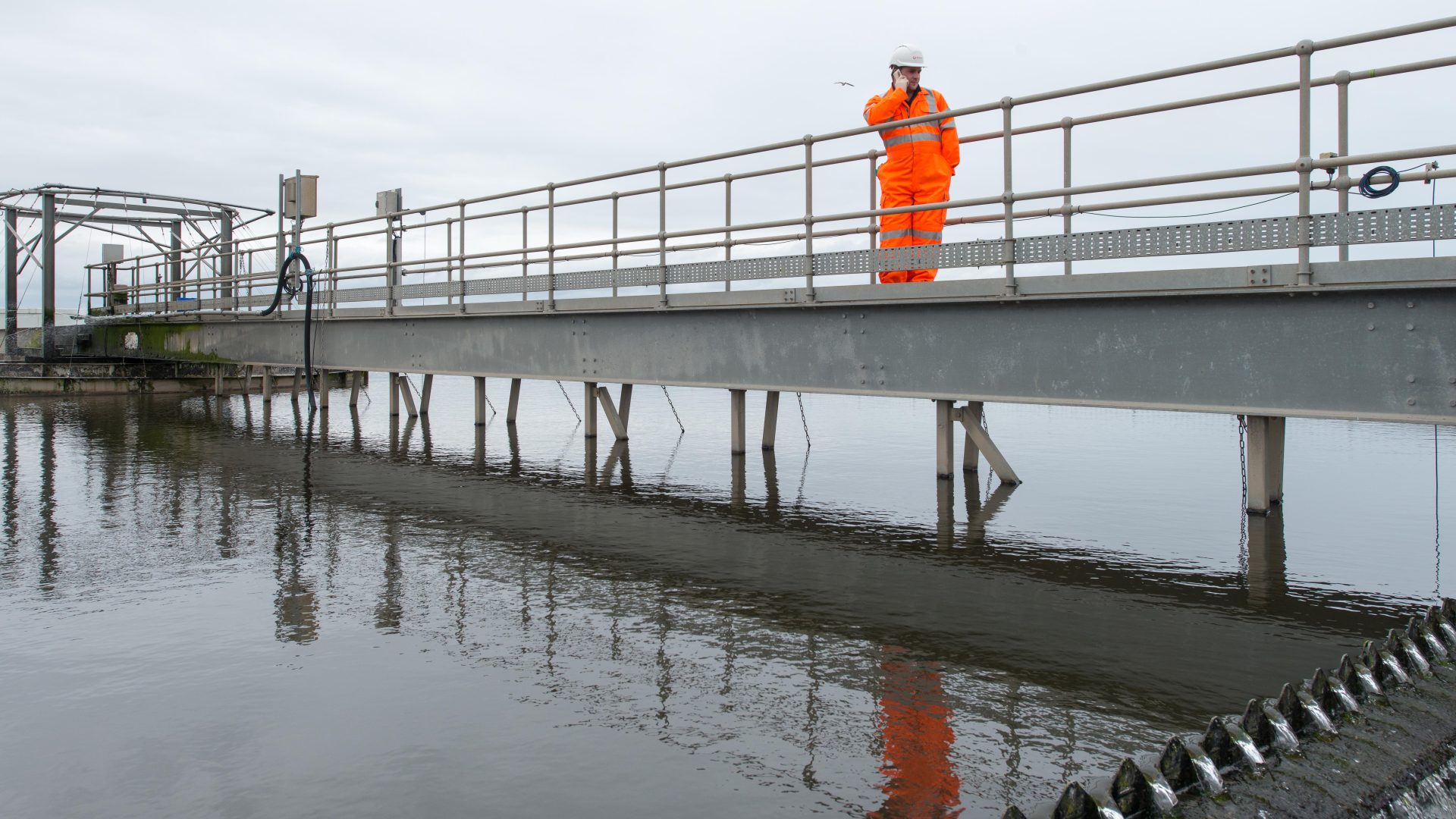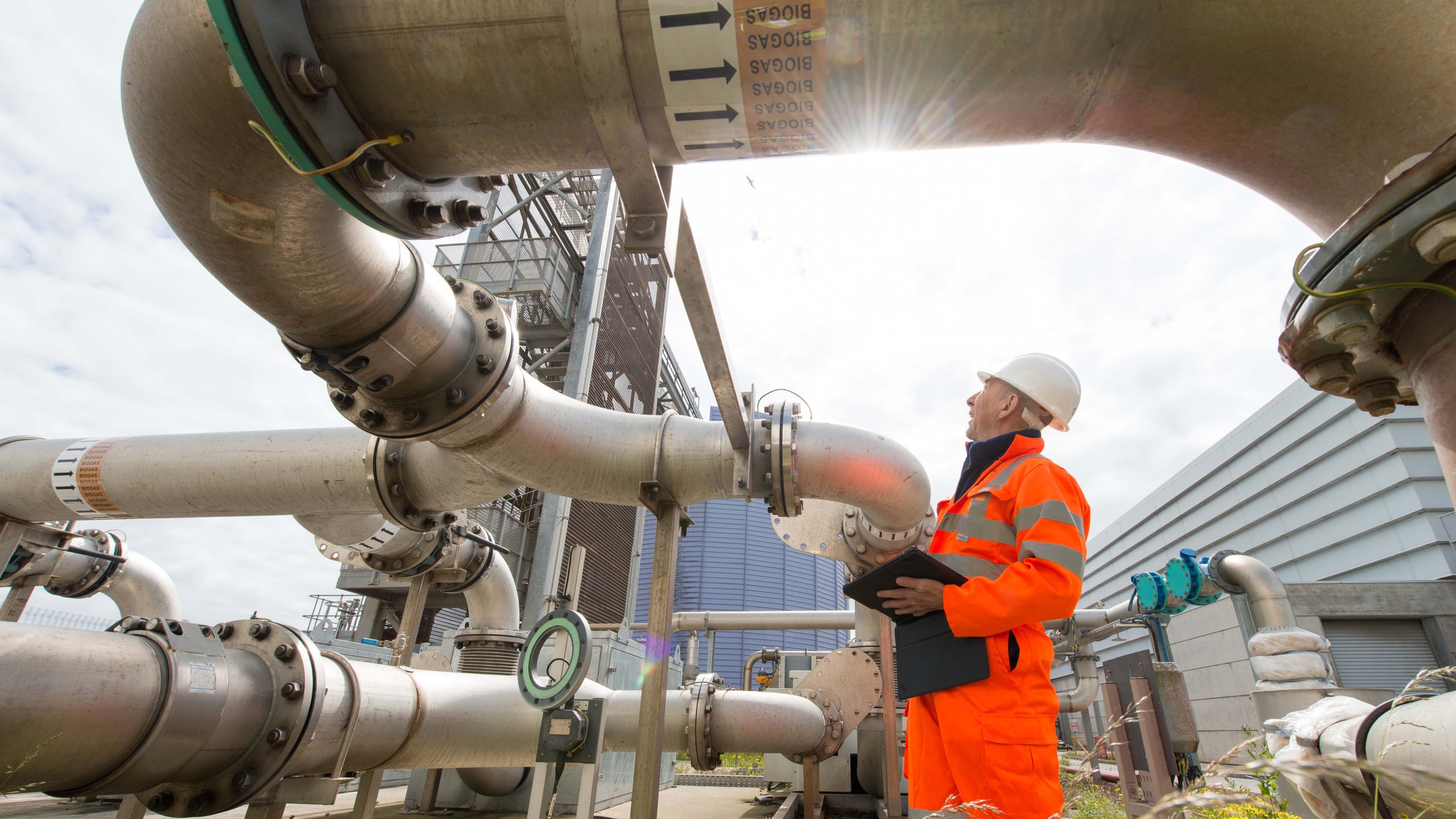Global resource management company, Veolia, is helping Scottish Water to achieve net zero by increasing the amount of renewable energy generated at Scotland’s largest Wastewater Treatment Works WwTW, Seafield in Leith, Edinburgh.
Since June 2022 Seafield has been a net exporter of renewable electricity producing over 108% of the electricity it requires to run the site, with generation on some days being in excess of 125% of the site’s needs. This equates to Seafield exporting enough renewable electricity to power over 800 homes every single day during this period, and is the first time the site has been a net exporter for such a prolonged period.
Seafield WwTW treats waste for a population equivalent of approximately 850,000 people from Edinburgh and the surrounding area which equates to 300 million litres of waste water every day – enough to fill 121 Olympic sized swimming pools. As the UK water industry is the fourth most energy intensive sector and uses around 3% of UK generated electricity for pumping, water treatment and waste management, achieving energy self-sufficiency is a key milestone. By implementing a range of innovations covering anaerobic digestion, thermal hydrolysis and 3.9MWe of combined heat and power technologies, the site produces its own renewable biogas supply from the wastewater treatment, and uses this to generate renewable electricity and heat to support the site’s operations. The success of the energy plant has enabled the site to exceed its target of energy self-sufficiency, taken pressure off the grid, and cut carbon emissions and energy costs.
A further benefit of the processes is the nutrient rich by-product it produces which can be used by farmers as a fertiliser. Around 36,000 tonnes of this is produced each year and act as a low cost, highly effective alternative to traditional chemical based fertilisers that are normally used to provide vital soil nutrients for agriculture. This effectively lowers the need for carbon intensive synthetic soil improvers which can help reduce the carbon footprint of food production.
Commenting on the continuing development, Gavin Graveson, Veolia Senior Executive Vice President Northern Europe Zone said;
“Recent estimates indicate that the water industry could be self-sustaining for electricity by harnessing the 11 billion litre annual flow of waste water. Our application of technology to this process at Seafield demonstrates how we can help deliver greater sustainability, make a significant contribution towards delivering renewable energy targets, and take pressure off the National Grid.
“This achievement really demonstrates what is possible now, and the future shows an even greater potential for this technology. If all available 130 million tonnes of untreated feedstocks, such as wastewater, agricultural slurry, food and green waste were treated through anaerobic digestion (AD) this could supply renewable electricity equivalent to powering 10.2 million homes.”
Gordon Reid, Net Zero Emission General Manager at Scottish Water said;
“Scottish Water has one of the most ambitious Net Zero emission targets in the industry. We are a very large energy user and achieving energy self-sufficiency at a site like Seafield is a key milestone for us.”




